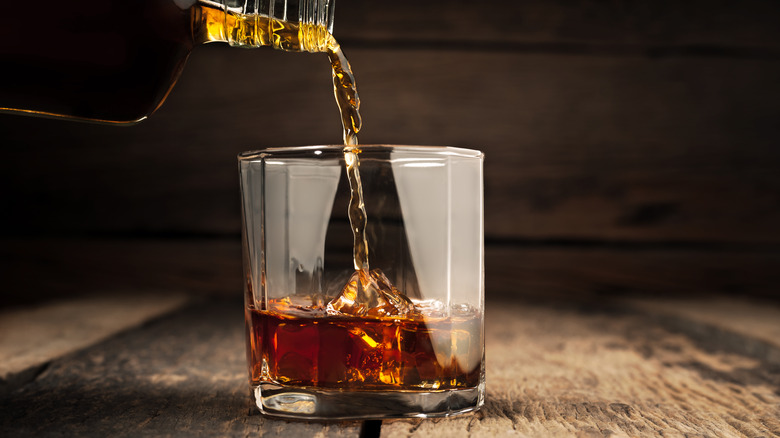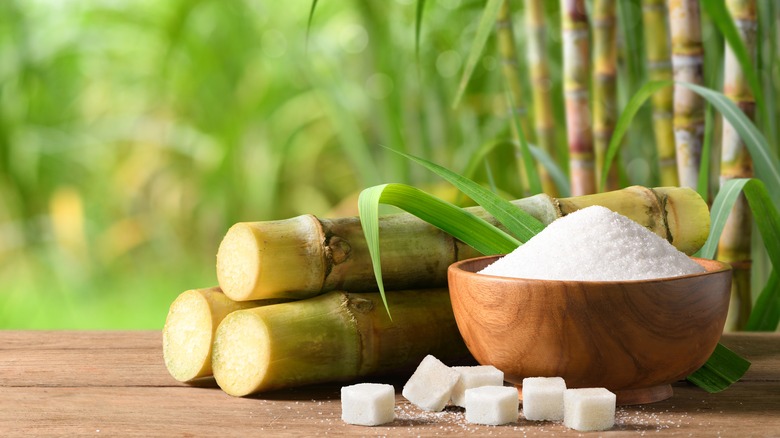What's The Main Ingredient Needed To Make Rum?
"Yo, ho, ho and a bottle of rum." The alcoholic beverage synonymous with fictional pirates and sailors out at sea is also an extremely popular liquor to utilize in cocktails on dry land. From a sophisticated Dark and Stormy cocktail to a classic Mai Tai, rum can be found in a ton of alcoholic beverages because of the sweet notes it evokes while drinking. While the dark liquor by itself isn't terribly sweet, it pairs well with sugary mixers in large part due to its origins. One thing you may not have known about rum is that it comes from sugar cane.
In fact, a majority of the ingredients used to make rum derive from sugar cane, including raw cane juice, syrup, cane sugar, and cane molasses. To transform sugar cane into a bottle of rum, the plant is harvested and quickly ground to extract the cane juice, which then goes through a lengthy fermentation and distilling process.
Surprisingly, distilled rum contains no sugar
Considering that rum is made from cane sugar, you might assume that the liquor has a high sugar content. However, distilled rum actually contains zero grams of sugar thanks to the fermentation process. The most common method for making rum involves processing cane juice into molasses that is then fermented by adding water and yeast. During that process, the sugar cane products are heated and condensed until they are converted into alcohol. Afterwards, the liquid is distilled, aged, and bottled for consumers to buy and enjoy.
While distilled rum in its purest form contains no sugar, most of the flavored rums found in the liquor aisles like coconut Malibu and raspberry Bacardi do contain grams of sugar that come from added artificial flavorings and sweeteners. And of course, many cocktails that contain rum tend to be high in sugar content due to mixers like fruit juices and seltzers that usually contain large amounts of sugar themselves. Luckily for rum-based cocktail lovers, the myth about sugary drinks causing terrible hangovers has been debunked. Although, you are more likely to overconsume when the bitter taste of alcohol has been masked with sweetness, which will contribute to a stronger hangover.


